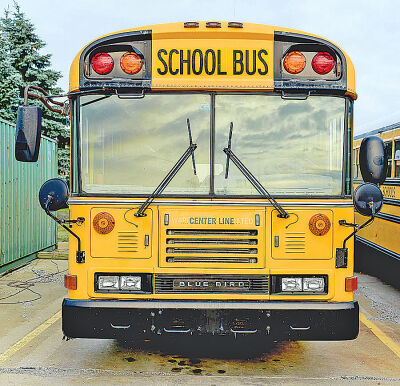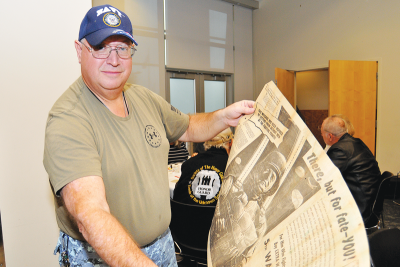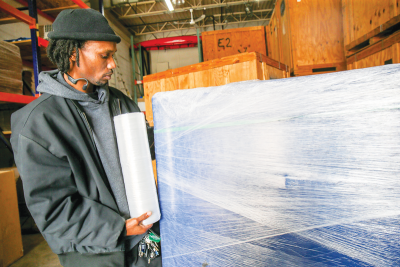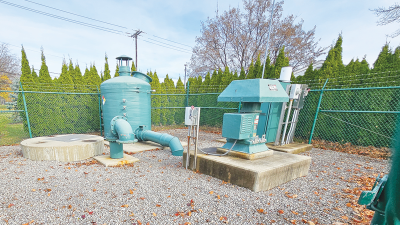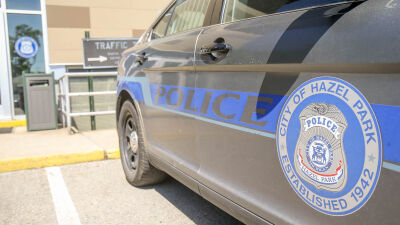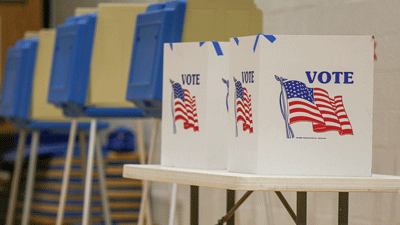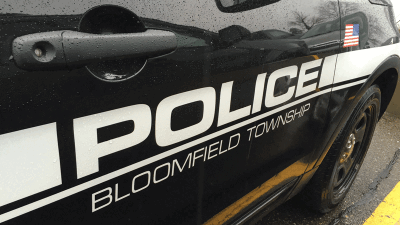WARREN/CENTER LINE — The voting majority from two districts — Center Line Public Schools and Warren Woods Public Schools — voted May 2 in favor of three ballot proposals to support their school communities.
According to the unofficial results from the Macomb County Clerk’s Office, residents in the Center Line district passed a school improvement bond proposal with 1,300 “yes” votes to 677 “no” votes, and an operating millage renewal with 1,326 “yes” votes to 651 “no” votes.
Voters in the Warren Woods district passed a replacement operating millage proposal with 1,500 “yes” votes to 829 “no” votes, according to the unofficial results from the county.
CLPS
Center Line Public Schools district Superintendent Joseph Haynes distributed a letter the morning of May 3 to thank the district’s parents and community members for their support.
“I am exhausted and overwhelmed and extremely grateful. On behalf of all of our students and staff, I want to thank you for your support of our schools and for helping us plan for a better tomorrow,” Haynes said. “Both ballot proposals, the operating millage renewal and the school improvement bond, passed yesterday by a substantial margin due to your support. They will allow us to meet the needs of our students today and also to repair our facilities and prepare for the future of the district.”
The operating millage renewal comes before the taxpayers every 10 years and makes up 31% of the district’s funding. Funds are used to pay for the everyday expenses of operating the school buildings, including salaries for teachers and support staff, heat, buses, diesel fuel, electricity, after-school activities, athletics and more.
According to school officials, the 31% totals $3,198 in per pupil funding of the $10,455 the district receives in state aid per student. State aid funds are distributed to public school districts across the state and placed into the general fund budgets of the districts. The general fund is the chief operating fund of the school district, which pays for staffing, curriculum, utilities, school supplies, buses, supplies and more.
According to school officials, the zero-mill increase school improvement bond will not increase the tax rate being levied for the district’s current bonded debt but keeps the tax rate at the current level.
The school improvement bond will generate $17 million for needed repairs throughout the district. The bond will establish a new bond at the same tax rate of the 2002 bond, which was for $8.35 million. The tax rate will remain at 1.93 mills, which residents will continue to pay. The school improvement bond is for 25 years.
When a bond proposal passes, the bonds are sold in the capital markets at a date determined by the district, a financial adviser and an underwriter. Upon closing, funds generated from the bond sale are deposited in the district’s construction fund and are available to spend for completion of the projects contemplated in the bond proposal.
The school improvement bond will fund the addition of two classrooms at Crothers Elementary; the creation of a secure entrance to the Eve Kaltz/Academy 21 building and the remodeling of classrooms to meet early childhood licensing requirements; the addition of student collaboration centers at Wolfe Middle School and Center Line High School; and repairs to the district’s tennis courts and more.
Partners in Architecture PLC, based in Mount Clemens, are the architects for the bond projects. McCarthy and Smith, of Farmington Hills, is the construction manager. To view a complete list of projects, visit the district’s website at clps.org.
WWPS
The Warren Woods Public Schools non-homestead replacement operating millage proposal does not increase the tax rate on homesteads, which is the primary residence in which a homeowner resides. The non-homestead tax only applies to businesses, second homes and rental properties.
The proposal was placed before the voters because all school districts in Michigan must levy 18 mills ($18 on each $1,000 of taxable value) on non-homestead property to receive their full share of state aid. According to Warren Woods district officials, the non-homestead levy in the district has been rolled back to 16.1889 mills. Because of that, the district lost over $400,000 in state aid for the 2022-2023 school year.
Now that it has passed, the operating millage will restore the 18 mills approved by the taxpayers back in 2005 and will eliminate the $400,000 shortfall the district is currently facing. Approval of the non-homestead millage proposal allows WWPS to levy the full 18 mills on non-homestead property and will generate approximately $4,280,000 per school year.
“On behalf of the Board of Education, I thank the Warren Woods Public Schools’ voters. The district lost over $400,000 in State Aid for the 2022-2023 school year by not being able to levy the full 18 mills,” Superintendent Stacey Denewith-Fici said via email. “Personally, I am grateful to the parents, staff, students, and other members of the community who helped us inform people about the non-homestead millage proposal. Thank you for your continued support.”
The renewal goes into effect on the summer 2023 tax bill and will be authorized for 10 years.
 Publication select ▼
Publication select ▼